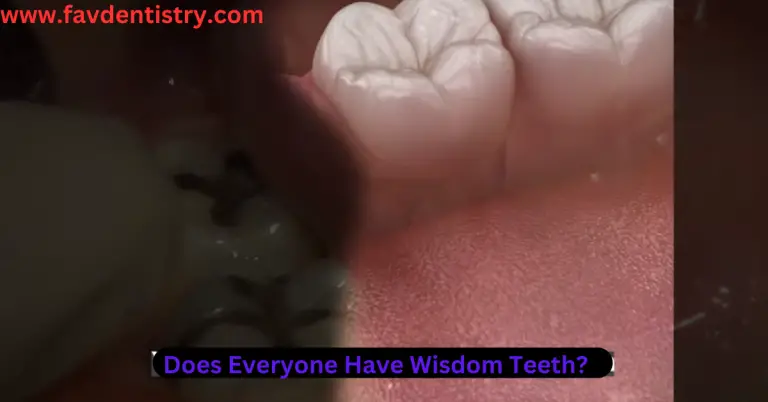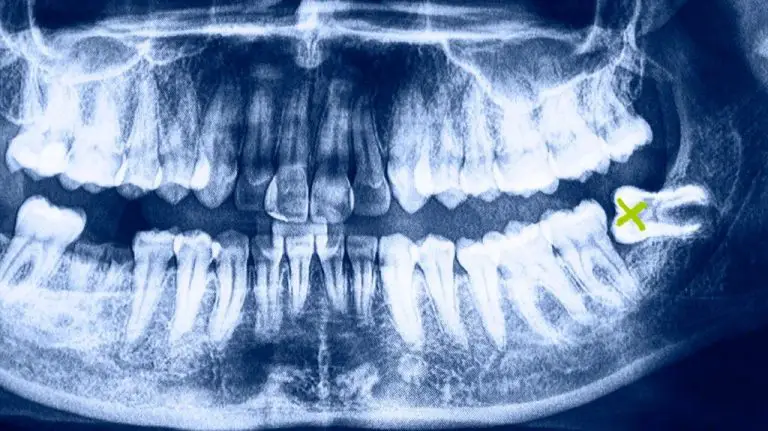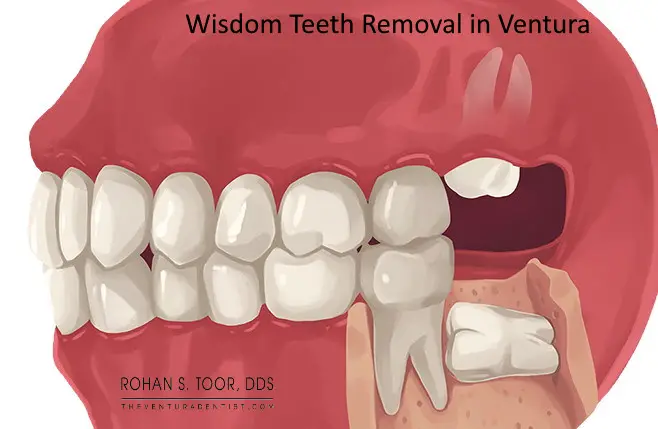Last Updated on 6 days by DR. ALBIN SIPES
Coughing after a tooth extraction can be unexpected and uncomfortable. Tooth extraction is a standard dental procedure. It is often performed to alleviate pain or address dental issues. There is no relation between coughing and tooth extraction.
So, coughing will not cause any problem in most of the cases. If this problem happens to you, it is rare and uncommon.
Common Reasons People May Cough After Tooth Extraction.
There are no common reasons for cough after tooth extraction. But if you feel that problem, the reason is here-
Irritation from Anesthesia: In tooth extraction, anesthesia is used to minimize the pain. Sometimes, the anesthesia can irritate the throat or induce a mild coughing reflex as it wears off.
Blood Drainage: A small amount of bleeding is average after a tooth extraction. Blood can trickle down the back of the throat, causing irritation and prompting coughing.
Swelling and Inflammation: Swelling and Inflammation in the mouth and throat can make it feel like something is lodged in the throat. It leads to coughing as the body attempts to clear the sensation.
Dry Socket: A dry socket is painful when the blood clot that forms in the socket after tooth removal becomes dislodged or dissolves prematurely. This can expose the underlying bone and nerves, causing intense pain, which may lead to coughing if it irritates the throat.
Postnasal Drip: After a tooth extraction, the body’s natural response to healing can lead to increased mucus production in the nasal passages, resulting in postnasal drip. This excess mucus can trickle down the throat and trigger coughing.
Medications: Pain medications and antibiotics prescribed after tooth extraction can sometimes have side effects like throat irritation or a dry throat, which can lead to coughing.
Underlying Respiratory Conditions: Individuals with pre-existing respiratory conditions like allergies, asthma, or chronic cough may be more susceptible to coughing after a tooth extraction due to heightened sensitivity in the respiratory tract.
Sore Throat: The mouth manipulation during extraction can cause a sore throat, leading to coughing as a reflex to alleviate discomfort.
Remember, this reason is they are not for everyone. Take this as a suggestion and contact a medicine specialist and dental surgeon.
When to Contact a Medicine Specialist And Dental Surgeon?
You need to contact them if you feel that your condition is a high risk. But if your problem starts before the tooth extraction, there is no need to be hyper. But somehow, you can follow these guidelines-
Dental Surgeon (Oral Surgeon or Dentist):
- a. Immediate Discomfort: If you are experiencing intense pain, bleeding that doesn’t stop, or any other severe symptoms immediately after the tooth extraction, contact your dental surgeon or oral surgeon directly. This could indicate complications such as a dry socket or infection.
- b. Persistent Coughing: If your coughing persists for more than a few days after the extraction and is causing significant discomfort or interfering with your ability to eat or sleep, it’s advisable to consult with your dental surgeon. They can assess your condition and determine if any dental-related issues contribute to the cough.
- c. Concerns about Healing: If you have concerns about the healing process, such as delayed recovery, unusual swelling, or changes in the surgical site, it’s essential to consult your dental surgeon. They can evaluate your condition and make any necessary adjustments to your treatment plan.
Medical Specialist (Primary Care Physician or Allergist):
- a. Respiratory Symptoms: If your cough is accompanied by other respiratory symptoms like wheezing, shortness of breath, or chest tightness, it may be related to an underlying respiratory condition. In such cases, you should contact your primary care physician or a specialist like an allergist or pulmonologist.
- b. Allergies or Sensitivities: If you suspect allergies or sensitivities may contribute to your coughing, an allergist can perform tests to identify potential triggers and recommend appropriate treatments or interventions.
- c. Medication Side Effects: If you suspect medications prescribed after the tooth extraction are causing or exacerbating your cough, consult your primary care physician or dentist. They can review your medication list and make adjustments as necessary.
- In some cases, if your problem is not solved, both will collaborate to suspect the problem.
6 Aspects: Is Coughing Bad After Tooth Extraction
- Duration: How long has the coughing been happening?
-
- Less than 24 hours (normal)
- 1-2 days (normal)
- 3-5 days ( start consulting )
- More than five days ( start consulting )
- Severity: How severe is the cough in terms of discomfort?
-
- Mild, manageable (normal)
- Moderate, causing some disruption (normal)
- Severe, significantly impacting daily life ( start consulting )
- Associated Symptoms: Are there any other symptoms along with the cough?
-
- None
- Pain, bleeding, or swelling at the extraction site
- Respiratory symptoms (wheezing, shortness of breath)
- Pain or Discomfort: Is the cough causing pain or discomfort?
-
- No pain or discomfort (normal )
- Mild pain or discomfort (normal)
- Severe pain or discomfort ( start consulting )
- Effect on Daily Life: How is the cough affecting your daily activities?
-
- No disruption (normal )
- Some disruption (eating, sleeping) (normal )
- Significant disruption (can’t function normally) ( start consulting )
- Response to Remedies: Has the cough improved with home remedies or treatments?
-
- Improved with remedies
- Unchanged or worsened
- I have not tried any remedies.
Here, normal means no need to worry. Start consultation is the process of contacting a dentist or medical specialist.
Cough After Dental Work
Here are some common reasons why you might cough after dental work:
- Irritation from Dental Materials: Dental procedures often involve using dental cement, impression materials, or filling materials. These substances may have a strong odor or taste, irritating your throat or triggering a cough reflex.
- Anesthesia: Local anesthesia is commonly used to numb the treated area during dental procedures. Sometimes, the process of injecting anesthesia can cause a brief coughing reflex.
- Posture During Treatment: The position in which you are placed during dental procedures, such as leaning back in the dental chair, can sometimes lead to saliva or other fluids flowing into your throat, triggering a cough.
- Dry Throat or Dehydration: Prolonged mouth opening and breathing through the mouth during dental procedures can lead to a dry throat. Dryness and dehydration can sometimes make you more prone to coughing.
- Allergic Reaction: In rare cases, some individuals may be allergic to dental materials or medications used during dental work. Coughing can be a symptom of an allergic reaction.
- Gag Reflex: Certain dental procedures, especially those involving impressions or X-rays, can trigger your gag reflex. It may lead to coughing as your body tries to clear the irritation.
If you experience a cough after dental work, here are some steps you can take:
- Inform Your Dentist: Let your dentist or dental hygienist know about your coughing symptoms. They can provide guidance and make adjustments if necessary.
- Stay Hydrated: Drinking water before and after dental procedures can help prevent a dry throat and minimize the risk of coughing.
- Breathing Techniques: If you tend to gag easily or experience a strong cough reflex during dental work, practice deep breathing techniques to help relax and control your breathing.
- Allergic Reactions: If you suspect your coughing is due to an allergic reaction, seek immediate medical attention. Allergic reactions can be severe and require prompt treatment.
- Medications: If your cough is severe and persists, your dentist or doctor may recommend over-the-counter cough suppressants or throat lozenges. Follow their guidance and only use medicines as directed.
Is Coughing Unhealthy After Tooth Extraction?
There is no health-related issue in coughing after tooth extraction. Coughing is a natural reflex of the body that can occur for various reasons. It may not necessarily indicate a problem with the extraction itself.
As we mentioned earlier, coughing may not be unhealthy, but it creates problems in the healing process. Excessive or severe coughing can dislodge the blood clot in the extraction socket. It leads to a condition known as dry socket, which can be painful and delay healing.
For fast recovery, follow your dental surgeon’s post-operative care instructions.
How to Determine Whether Coughing Is Serious
Determining whether coughing is severe or not involves assessing several factors. Here are some guidelines to help you evaluate the seriousness of a cough:
- Duration: Consider how long the cough has persisted. A cough that lasts for a short term, such as a few days, is less likely to cause concern. However, a cough that persists for several weeks or months may warrant closer attention.
- Frequency: Take note of how often you cough. Occasional coughing may not be severe due to irritants like dust or allergies. On the other hand, frequent or constant coughing, significantly if it disrupts your daily life, could be a sign of a more significant issue.
- Severity: Assess the severity of the cough. A mild, occasional cough that doesn’t cause discomfort or interfere with your activities is less concerning than a severe, persistent cough that affects your breathing, eating, or sleeping ability.
- Associated Symptoms: Consider any other symptoms that accompany the cough. Symptoms like fever, shortness of breath, chest pain, blood in the mucus, or unexplained weight loss can indicate a more serious underlying condition.
- Underlying Health Conditions: If you have pre-existing health conditions such as asthma, chronic obstructive pulmonary disease (COPD), or allergies, any change in your cough pattern or increased severity should be taken seriously.
- Triggers: Identify what triggers or worsens the cough. Allergies, respiratory infections, smoking, exposure to environmental irritants, or specific activities (such as eating) can exacerbate coughing.
- Response to Remedies: Consider whether over-the-counter remedies, such as cough syrups or antihistamines, have provided relief. If the cough persists despite trying common remedies, it may be a sign that the underlying cause is more serious.
- Medical History: Your medical history plays a crucial role. If you have a history of lung disease, heart conditions, or immunosuppression, you may be at higher risk of severe complications related to a cough.
- Age: Age can also be a factor. Coughing in infants, older people, or individuals with weakened immune systems should be taken more seriously, as these groups are more vulnerable to respiratory issues.
- Consult a Healthcare Professional: When in doubt or concerned about your cough, it is advisable to consult a healthcare professional. They can perform a thorough evaluation, order necessary tests, and provide a diagnosis or treatment plan based on your specific condition.
What Are the Best Ways to Stop Coughing After Tooth Extraction?
Natural remedy to help stop coughing after a tooth extraction:
Gargling with Warm Salt Water:
Gargling with warm salt water is a simple and effective natural remedy to soothe throat irritation and minimize coughing after tooth extraction. Here’s how to do it:
Ingredients:
- 1/2 teaspoon of salt
- 8 ounces of warm water
Instructions:
- Dissolve 1/2 teaspoon of salt in warm water in 8 ounces (about 1 cup). Make sure the water is comfortably warm, not too hot.
- Take a small sip of the saltwater solution, tilt your head slightly, and gargle for 15-30 seconds. Be careful not to swallow the solution; spit it out after gargling.
- Repeat the gargling process 2-3 times daily, especially after meals and bedtime.
How It Helps:
Gargling with warm salt water offers several benefits:
- Soothing Effect: The warm saline solution helps reduce Inflammation and irritation in the throat and surgical area, relieving coughing triggers.
- Antibacterial Properties: Salt has natural antibacterial properties that can help prevent infection in the extraction site.
- Promotes Healing: Gargling with salt water can aid in healing by keeping the area clean and reducing the risk of infection.
This natural remedy is safe, easy to prepare, and valuable to your post-tooth extraction care routine. However, if your coughing persists or worsens, it’s essential to consult with your dental surgeon for further guidance and evaluation.
Frequently Asked Questions About “Coughing After Tooth Extraction”
Are There Long-term Effects of Coughing After Tooth Extraction?
No, there are no Long-Term Effects of Coughing After Tooth Extraction.
Should you avoid using straws or spitting forcefully to minimize the risk of coughing-related complications after tooth extraction?
Yes, you must avoid using straws or spitting forcefully to minimize the risk of coughing-related complications after tooth extraction.
Should you avoid smoking or exposure to irritants like dust and pollution if you cough after a tooth extraction?
Yes, it would be best if you avoided it. Smoking can delay the healing of gum.
Conclusion
Coughing because of tooth extraction is rare. It’s your other health-related issue. Natural remedies like gargling with warm salt water and staying hydrated can relieve and promote healing.
By taking these precautions, you can minimize the impact of coughing on your healing journey and work toward a successful and comfortable post-tooth extraction experience.





